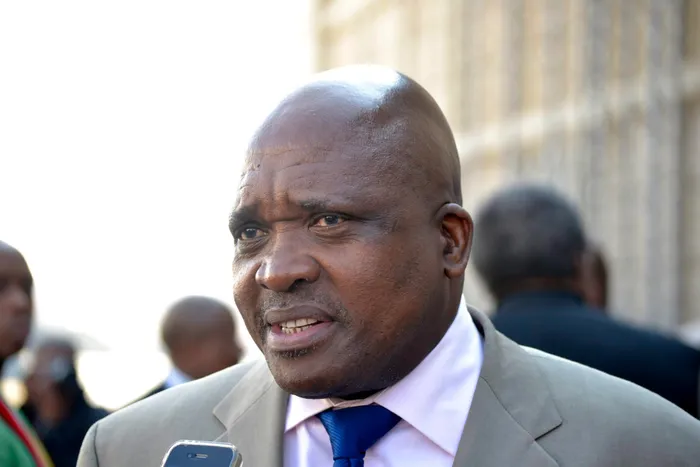Concern over new regulations proposed under National Health Act

The lifting or termination of the National State of Disaster didn’t automatically mean the end of the pandemic, said Health Minister Joe Phaahla. Picture: Ofentse Ramaboa
CAPE TOWN - While the lifting of the National State of Disaster has been widely welcomed, concerns have been raised over the impact of new regulations proposed under the National Health Act.
Health Minister Joe Phaahla and Co-operative Governance Minister Nkosazana Dlamini Zuma and Minister in the Presidency Mondli Gungubele held a media briefing on Tuesday following President Cyril Ramaphosa’s announcement on Monday about the lifting of the National State of Disaster.
Certain regulations such as the wearing of masks indoors and providing a vaccination certificate or a negative Covid-19 test at large events will remain in force for the next 30 days.
Asked about the enforcement of the mask mandate and also adherence to the limitations on gatherings, Dlamini Zuma said it was “in our own hands” to follow the regulations individually and collectively.
Covid-19 will now be managed in terms of the National Health Act.
Once the period for public comment closes on April 16 and comments have been considered, regulations will be finalised and promulgated.
Phaahla said the lifting or termination of the National State of Disaster didn’t automatically mean the end of the pandemic.
“Hence we encourage all eligible unvaccinated and partly vaccinated people to vaccinate because vaccines remain the only effective weapon for us to prevent the resurgence of the pandemic and a high number of casualties.”
In some countries, he said, there was a lot of concern and he pointed to the lockdown currently in force in the Chinese city of Shanghai.
Civil society organisation DearSA, which had legally challenged the state to end the State of Disaster, said the announcement was a significant victory for civil society but they remained “very concerned” over the government’s intentions to move certain “far-reaching” restrictions to the National Health Act.
“The government is essentially clinging to the extraordinary emergency powers they would now have to surrender. There is no disaster, hence there is no honest reason to amend regulations,” said DearSA chief executive Gideon Joubert.
DearSA launched a formal public participation campaign in response to the call for public comment on the proposed Health Act regulations.
More than 132 000 citizens have given input so far.
Western Cape Premier Alan Winde said the lifting of the National State of Disaster was long-overdue and would ensure a much-needed focus on economic recovery amid a second pandemic of joblessness.
Business Unity South Africa chief executive Cas Coovadia said the passing of the 30-day transition period gave the country an opportunity to accelerate efforts to grow the economy in a sustainable and inclusive manner.
“We now urge the government to demonstrate courageous leadership in taking the tough decisions to attract investment and work with business and other social partners to grow our economy. We galvanised ourselves as a country, as all sectors of society, to collaborate to beat the pandemic,” said Coovadia.
Mayco member for economic growth James Vos said while they also welcomed the move there were some measures still in place that needed to be lifted, namely the 50% capacity for venues.
“This places an unnecessary burden of cost on venues. In addition, the decision to maintain PCR testing for unvaccinated children between the ages of 5 and 12 should be scrapped as this will have a major impact on family travel to and from the country.”
Cape Town Tourism chief executive Enver Duminy said there was a need to restart tourism engines as there were many lives affected directly and indirectly by tourism.
“We have recently launched our interactive travel experience, Find Your Freedom, our most important recovery campaign yet,” he said.
Cape Times
Related Topics: